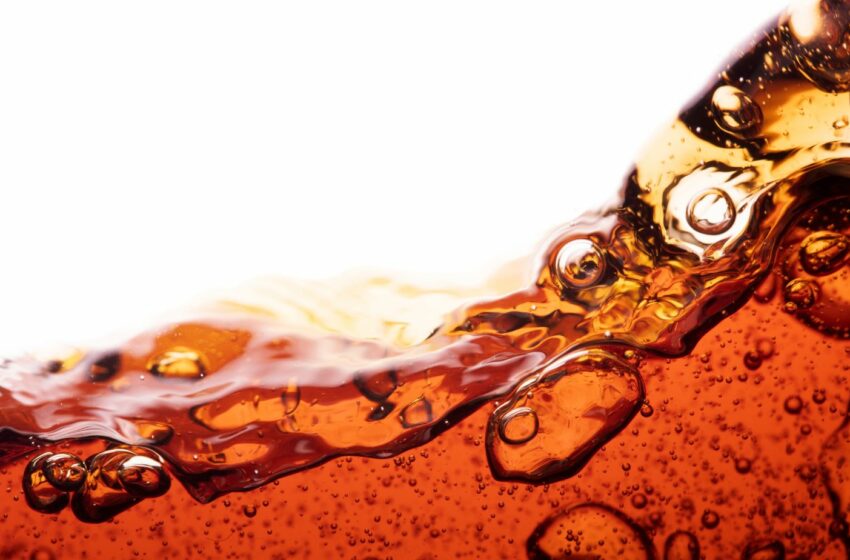
The effects of Coke on Breastfed Babies
The Impact of Drinking Coke While Breastfeeding
Being a nursing mother, you may be concerned about what you eat or drink, especially the caffeine present in coke or other soft drinks. Research suggests that consuming caffeine in moderate amounts does not pose any significant harm to nursing infants. However, high quantities may lead to an irritable and restless baby due to caffeine getting into the milk.
The Duration of Coke’s Presence in Breast Milk
Coke contains caffeine, which can stay up to six days in your system. This means that breastfeeding mothers should be cautious with their daily intake of coke to avoid transferring harmful substances to the baby through breast milk.
Unique Facts on Caffeine and Nursing Babies
Consuming caffeine after nursing is advisable as it gives time for your body to process it before supplying more milk. As much as one cup or two of caffeinated soda won’t affect most babies, always consult with your doctor before indulging overly.
Don’t Risk Your Baby’s Health; Seek Help!
As a responsible mother, ensure you consult your doctor or pediatrician on the suitable safe levels of coke consumption for both you and your infant, protecting them from any potential adverse effects.
Looks like your baby’s milk just got a little more ‘refreshing’… and by refreshing, I mean full of caffeine and sugar.
How Long Does Coke Stay In Your System While Breastfeeding
Research suggests that consuming Coke while breastfeeding can affect breast milk. The high caffeine and sugar content in Coke can pass through breast milk to the baby, leading to irritability, poor sleep, and other negative effects. Additionally, the high amounts of phosphoric acid can reduce the amount of calcium in breast milk, which is essential for the baby’s bone growth. It is advisable for breastfeeding mothers to avoid consuming Coke and other sugary drinks for the benefit of their baby’s health.
It is important to note that the effects of Coke on breast milk vary from person to person and can depend on several factors, such as the mother’s age, weight, and overall health. It is always best to consult a healthcare professional before making any changes to the diet while breastfeeding.
In addition to the negative effects on breast milk, there have been cases of breastfeeding mothers who have tested positive for cocaine after consuming large amounts of Coca-Cola. This is because Coca-Cola contains coca leaf extract, which is used to produce cocaine. While the amount of coca leaf extract in Coca-Cola is small and considered safe for consumption, consuming large amounts can result in a false positive drug test.
One mother reported to have tested positive for cocaine after drinking 10 cans of Coca-Cola a day. This caused a great deal of stress and trauma for the mother, who lost custody of her child until the test was proven to be a false positive. Therefore, it is important for breastfeeding mothers to limit their consumption of Coke and other sugary drinks.
Overall, it is advisable for breastfeeding mothers to avoid consuming Coke and other sugary drinks as they can affect breast milk and have other negative effects on both the mother and baby’s health. It is best to consult a healthcare professional for advice on a healthy and balanced diet while breastfeeding.
Get ready to become a chemist as we dive into the secrets of Coke’s ingredients and their effects on your body.

Understanding The Composition Of Coke
Coke’s chemical composition and effects on breast milk are crucial knowledge for nursing mothers.
A comprehensive table may help with understanding the various compounds present in Coke, its nutritional values, and potential adverse effect on breast milk. For example, a 12 oz can of Coke contains about 39 grams of sugar, 45 mg of caffeine, and several chemical preservatives.
Additionally, high sugar intake may cause obesity and eventually lead to lactation issues. While one or two cans per day are unlikely to have an immediate adverse effect on breast milk quality or production, moderation is key.
Interestingly, the Coca-cola Company originally included coca leaves and kola nuts as ingredients until they were removed because of the coca leaf’s narcotic qualities.
Knowing how Coke affects breast milk will guide nursing mothers in making informed decisions concerning their health and that of their infant’s well-being.

How Coke Enters Breast Milk
Breast milk can be affected by the consumption of Coke, owing to its caffeine and sugar content. The question arises – How does Coke enter breast milk? Let’s investigate this in detail.
To understand how Coke enters breast milk, we need to take a closer look at the biological processes of lactation. When we consume food and drink, it is broken down into nutrients and enters our bloodstream. This blood then delivers those nutrients to the mammary glands, which produce breast milk. Hence, when a breastfeeding mother drinks a can of Coke, caffeine and sugar from the beverage are absorbed into her bloodstream and then transferred to her mammary glands, from where it passes onto her breast milk.
|
How Coke Enters Breast Milk |
|
|
Substances that affect breastmilk composition |
Caffeine and sugar |
|
Method of entry into breastmilk |
Absorbed into mother’s bloodstream, then passed onto mammary glands |
Apart from caffeine and sugar, Coke also contains other compounds like aspartame and phosphoric acid that may cause harm to babies. It is important for breastfeeding mothers to monitor their consumption of such beverages for their baby’s health.
Adding on to our understanding above, it is essential that breastfeeding women avoid consuming excessive amounts of caffeinated beverages like Coke since these contain addictive substances leading to interference with their babies’ sleep patterns.
Pro Tip: To maintain your baby’s health while breastfeeding, try limiting your intake of caffeinated beverages like Coke or switching to low-caffeine or decaf alternatives instead.
Looks like your baby’s gonna have a caffeine addiction before they even have teeth.
Risks of Coke Consumption While Breastfeeding
Coke consumption may have detrimental effects on the breastfeeding infant. The potential risks may include caffeine-induced irritability, poor sleeping patterns, and increased bowel movements. These could further lead to insufficient weight gain, malnutrition, and developmental problems.
Moreover, coke consumption while breastfeeding may result in reduced milk production, affecting the infant’s nutrition intake. The high caffeine levels in coke may also lead to dehydration, which could again impact milk production. Hence, it is advised to limit or completely avoid coke consumption during breastfeeding.
It is essential to note that different types of coke have different compositions, varying caffeine levels, and added sugars. Thus, it becomes imperative to consider the composition and quantity of coke before consuming in moderation.
Pro Tip: Opt for healthier and nutritious alternatives like water, fruit juices, and milk to maintain adequate hydration and nutritional levels, promoting optimal infant health and development.
You might want to switch to decaf if you don’t want your baby bouncing off the walls, but at least they won’t be testing positive for coke.
Impact on Infant Health And Development
Coke consumption during breastfeeding can have a detrimental effect on the infant’s health and development. The presence of caffeine in Coke can affect the infant’s sleep and lead to its behavioural changes, such as irritability and agitation. Additionally, Coke contains high amounts of sugar which adversely affects the child’s metabolism.
Furthermore, the intake of artificial sweeteners in Coke leads to gastrointestinal issues like bloating and stomach cramps in infants. As a result, it is essential for nursing mothers to avoid consumption of Coke as it has a significant impact on their baby’s health.
Pro Tip: Nursing mothers should consume enough water and natural healthy drinks instead of consuming beverages containing caffeine or artificial flavours, making sure that they provide sufficient nutritional value to their infants. Breastfeeding may require some sacrifices, but sacrificing your health for a cola fix isn’t one of them.
Risks For The Nursing Mother
The consumption of Coke while breastfeeding poses potential health risks for nursing mothers. This is because the high levels of caffeine and sugar in Coke can have adverse effects on both mother and baby. It can cause restlessness, irritability, sleep disturbances, and colic in infants. Moreover, caffeine can increase heart rate and blood pressure, leading to possible dehydration in the mother.
Thus, it is recommended that nursing mothers avoid consuming Coke or any other caffeinated beverages. Additionally, the acidic nature of Coke can also cause tooth decay and erosion in both mother and child. The carbonation in Coke can further aggravate gastric issues such as acid reflux or indigestion experienced by some nursing mothers. Given these risks, it is essential for breastfeeding mothers to prioritize a healthy diet without fizzy drinks or high-sugar beverages.
Pro Tip: As an alternative to Coke or caffeinated beverages during breastfeeding, opt for water or herbal tea without added sugars or caffeine to stay hydrated and support lactation. Why not just switch to Pepsi and avoid the risks altogether?
How to Safely Consume Coke While Breastfeeding?
Consuming Coke while breastfeeding can be a concern for mothers because of the caffeine content in soda. To safely consume Coke while breastfeeding, mothers can follow certain guidelines. One of the effective ways is to limit the intake to a maximum of 300mg caffeine per day, which is equivalent to 2-3 cups of coffee. Mothers can also consume Coke after breastfeeding or wait for 2-3 hours before nursing again.
It is important to note that caffeine can be stored in breast milk for up to 96 hours, which can affect the baby’s sleep patterns and cause irritability. Therefore, it is recommended to monitor the baby’s behavior for any changes after consuming Coke while breastfeeding.
Moreover, substituting Coke with other healthier and caffeine-free beverages such as water, milk, and juice can also be a better option for lactating mothers.
Warning: Exceeding recommended Coke intake while breastfeeding may result in a baby who thinks they can fly like a Red Bull.
Consuming Coke while breastfeeding may have negative impacts on the newborn. The caffeine in Coke may cause irritability, sleep disorders and even impact breast milk production. It’s better to avoid excessive consumption of Coke.
To mitigate such effects, it is recommended to limit caffeine intake and keep track of hours until baby sleeps. Water and healthy beverages are other options that can be incorporated into daily routine.
While everyone loves an occasional glass of their favorite soda drink, as a new mother, you want to provide your newborn with the best possible care; avoiding risky food choices is one way to do so. Keep in mind these suggestions and enjoy motherhood!
